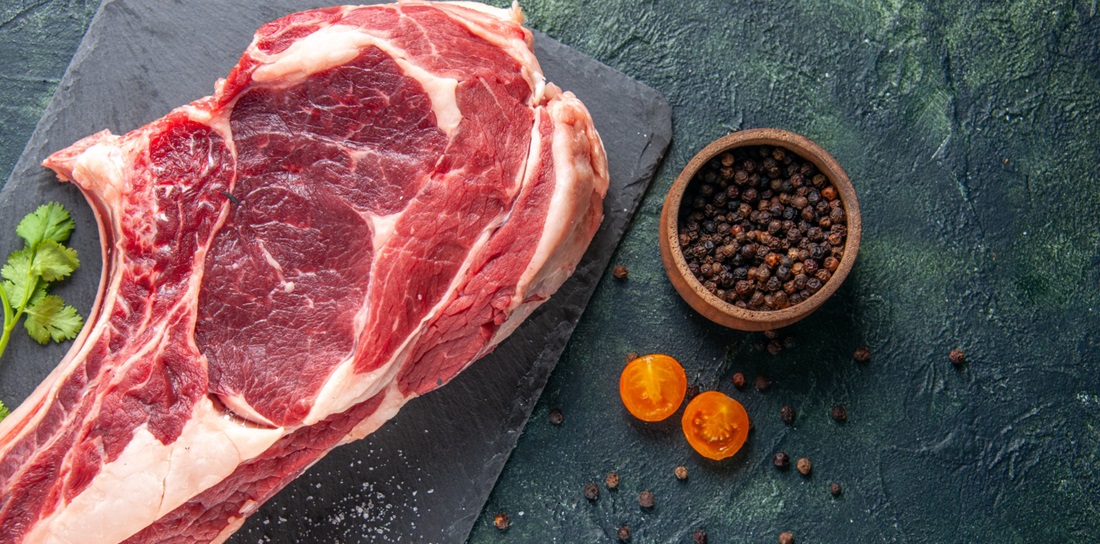
Brazil’s Beef Market: Key Trends for 2025—Exports, Tax Reform, and COP 30
Jan, 07, 2025 Posted by Gabriel MalheirosWeek 202502
With exports going through the roof in 2024, Brazil’s beef market is positioned for continued growth in the coming years. Its robust infrastructure and extensive expertise will push this growth forward.
According to the National Agriculture and Livestock Confederation (CNA), Brazilian beef exports surged 30.4% between January and November 2024 compared to the same period in 2023, sustaining the sector’s expansion.
Last year, the industry generated R$13 billion in export revenue and aims to further increase its global market share in 2025, focusing on Asian markets, which account for nearly 30% of global beef consumption.
Roberto Perosa, the newly appointed president of the Brazilian Association of Meat Exporting Industries (Abiec), highlighted that despite ongoing challenges, including the need to tap into new markets, Brazil remains committed to strengthening its production and global presence.
“Brazil is already the world’s largest beef exporter, and we still face challenges. We’re set to enter new markets at the start of the year, including Japan, Vietnam, Turkey, and South Korea, which together account for almost 30% of global beef consumption,” Perosa stated.
He noted that a trade agreement with Japan, which has been under talks for over 20 years, is nearing completion. A Brazilian delegation, accompanied by the Ministry of Agriculture, will travel to Japan in February to finalize the terms.
In Turkey, the deal is in its final negotiation phase, with only a few technical issues remaining.
In Vietnam, bureaucratic hurdles have been overcome, leaving only the formalization of the agreement by a Brazilian official pending. Perosa expressed optimism that these challenges will be resolved early in 2025.
“The agreement with South Korea is the most delayed, as there are still obstacles to overcome. Additionally, political issues within the country add to the complexity,” he remarked.
Perosa also emphasized the positive livestock cycle in Brazil, with an ample supply of cattle for slaughter. He projected that Brazil would remain a key beef supplier to the global market for at least the next two years.
Below is a historical overview of Brazilian containerized beef exports between January 2021 and November 2024. The data comes from DataLiner, a product of Datamar’s market intelligence.
Beef Exports | Jan 2021 – Nov 2024 | TEUs
Source: DataLiner (click here to request a demo)
Tax Reform: Making Beef More Accessible at Home
While expanding its global market share, Brazil will continue to prioritize its domestic market, where 75% of all beef produced is consumed.
Perosa underscored the significance of the upcoming tax reform, which is set to be enacted in the coming days to ensure more equitable prices for local consumers.
“Seventy-five percent of the beef produced in Brazil stays here, while only 25% is exported. The [tax reform] is crucial for providing affordable meal options to Brazilians. Beef consumption is deeply ingrained in our culture. This reform will correct an injustice that plages the sector and Brazilian consumers alike,” he told CNN.
Under the tax reform approved by lawmakers at the end of 2024, beef will now be exempt from taxes under Brazil’s staple food basket program. Although some inputs already benefited from no federal taxes, certain states imposed local levies.
The new policy will grant discounts to end consumers for all beef products, with reduced taxes on cattle, potentially lowering the prices of premium cuts like the picanha [rump cap] —a campaign promise of President Lula.
Perosa also noted that Brazil’s growing cattle production ensures a steady beef supply for both domestic and international markets.
According to CNA projections, the sector is expected to grow 6.2% in 2025, reaching R$453.3 billion, driven by increased beef production.
COP 30 and Sustainability Challenges
Hosting the 2025 United Nations Climate Change Conference (COP 30) presents new challenges for Brazil’s beef industry. Pressure has intensified following COP 29 in Azerbaijan, where limited progress was made on climate financing.
One of Brazil’s priorities at COP 30 will be showcasing its best practices in production and sustainability. Perosa sees the event as an opportunity for Brazil to position itself as a global leader in sustainable agricultural practices.
“For Brazil and its agricultural sector, hosting the COP is extremely positive. It will highlight what we’ve achieved in terms of integration and sustainability. We’re planning a joint pavilion with poultry and pork producers to create an immersive experience that showcases Brazil’s production systems,” he said.
Perosa pointed out that Brazil has one of the world’s most extensive production systems, with 80% of cattle raised on pasture, giving the country a competitive edge.
The joint pavilion will highlight the sector’s advancements, including corporate initiatives, genetic improvements, and the supply of younger cattle to China. “We’ll demonstrate what’s being done to counter the critics who claim we’ve made no progress,” he concluded.
Source: CNN Brasil
Click here to access the original report: https://www.cnnbrasil.com.br/economia/macroeconomia/mercado-de-carne-exportacoes-reforma-tributaria-e-cop-30-moldam-setor-em-2025/
-
Steel and Aluminium
Aug, 12, 2024
0
Brazil’s Steel Imports Slow Down Following Government Tariff Hike
-
Port Rankings
Aug, 19, 2022
0
Port Ranking | DataLiner | Jan-Jun 2022 vs. Jan-Jun 2021 | Brazil and Plate
-
Ports and Terminals
Jul, 06, 2023
0
Record 2,500 vehicles bring grains and meals to Paranagua Port in just 24 hours
-
Ports and Terminals
Nov, 29, 2024
0
Auctions at Port of Santos to bring billions in investments to the coast of São Paulo



